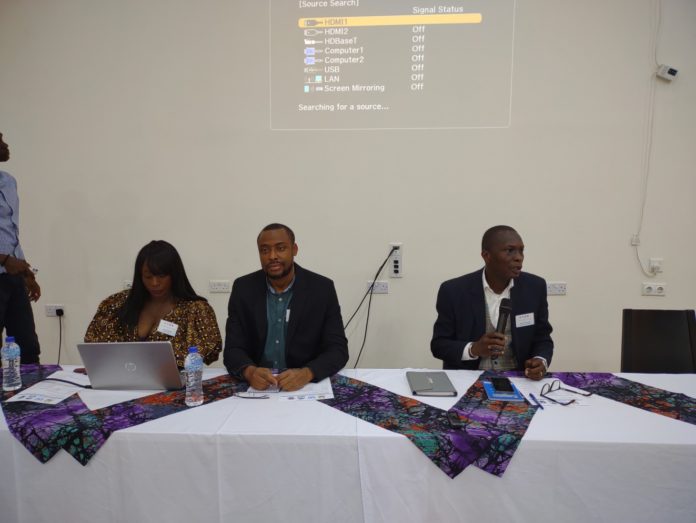By Hassan Gbassay Koroma
The Ministry of Trade and Industry, through its Strengthening Regional Value Chains and Market Access in the ECOWAS Region, yesterday Monday, May 8, held a stakeholders consultation workshop on value chain for vegetable oil and processed food products.
The two-day consultation workshop which ends today at the New Brookfields Hotel brought together stakeholders in the trade sector including farmers, food producers and others.
The project, which is funded by the Islamic Development Bank, Arab Bank for Economic Development in Africa, seeks to build the capacity of participating Islamic Development Bank IsDB and Arab Bank for Economic Development in Africa, ADEA member countries from ECOWAS to promote trade, value addition and regional integration through the development of high potential regional value chains.
The project also aims to strengthen the capacity of four ECOWAS countries including the Gambia, Senegal, Togo and Sierra Leone to promote intra-African trade, value addition and regional integration through the development of high potential regional value chains..
To meet those objective, the project will generate the following key outputs, including identification and prioritization by national stakeholders, of two high potential regional value chains, formulation of a shared roadmap and of a set of bankable projects to support regional value chain development and mapping of relevant Non-Tariff Measures and increased regulatory collaboration among beneficiary countries.
Speaking during the workshop, the Chief Director and Professional Head at the Ministry of Trade and Industry, Emmanuel Konjoh, said the Strengthening Regional Value Chains and Market Access in the ECOWAS Region Project is to ensure that Sierra Leone is part of the market value chains in ECOWAS countries.
He said the workshop was basically looking at the palm oil and cacao sectors, noting that Sierra Leone has made significant progress in the production of oil, disclosing that Sierra Leone is now importing vegetable oil to countries like the Gambia, Senegal and other on weekly basis.
He said oil palm and cacao is the country’s major export, noting that the oil palm sector has been transformed into production of oil and the country no longer import cooking oil into the country again.
He said the country export volume of containers into the Gambia, Senegal Liberia and other countries and there have been tremendous increases in the country’s export volume of palm oil into the American market and the demand is high, noting that just weeks ago they inter face with the United Arab Emirate expressing interest on the Sierra Leone products because if it high quality.
He said over the country has now be accredited through the Management Certification Body and for the very first time in the Mano River Union that everything tested in the country is globally accepted, noting that the country can now have full certified micro biology laborative and testing gears will be coming into the country very soon which shows that the country is making progress.
In his presentation, Project Coordinator from United Nations Conference on Trade and Development (UNCTAD),Malick Kane, noted that the workshop’s objective was to review and enrich value chain assessment findings, collectively identify key challenges and opportunities to enhance production, value addition, regional cooperation, and exports from Sierra Leone to Africa, discuss a set of bankable projects ideas to support regional value chain development and advance their formulation and mapping of relevant Non-Tariff Measures and potential areas of regulatory collaboration among beneficiary countries.
He said the expected outputs includes identification and prioritization by national stakeholders, of two high potential regional value chains, formulation of a shared roadmap and of a set of bankable projects to support regional value chain development and mapping of relevant Non-Tariff Measures and increased regulatory collaboration among beneficiary countries.
National Consultant of Strengthening Regional Value Chains and Market Access in the ECOWAS Region Project, Emma Fofanah said the most important part is that the project aims at making the value chain with oil and fat and processed food to work more effective and it targeting all players within the value chain from farmers to high level financial institutions and producers.





